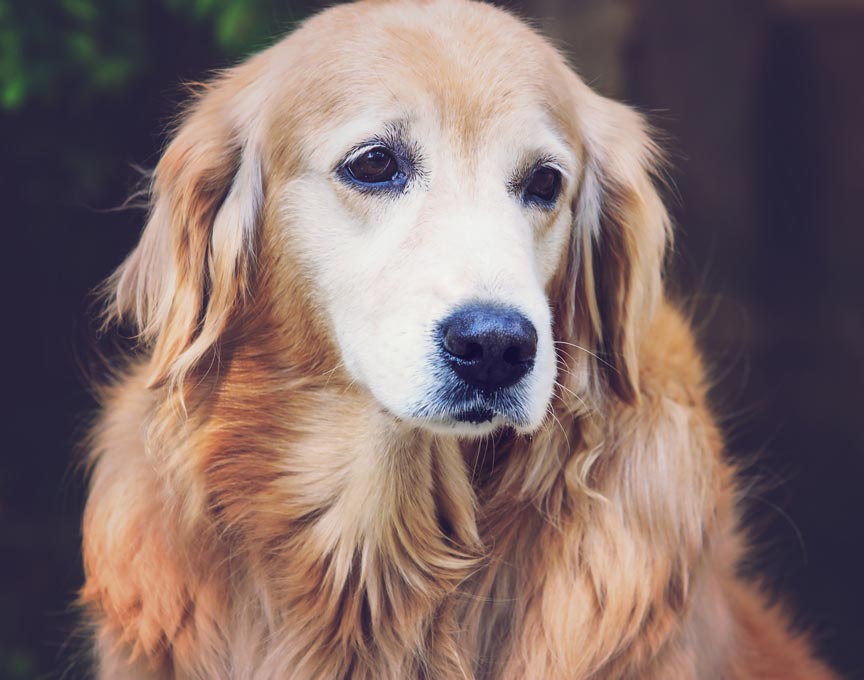Old Dog, New Tricks: How to Socialize an Older Dog

There's a saying: "You can't teach an old dog new tricks." While it's usually applied to a situation where a person doesn't want to change certain ingrained behaviors, it can actually apply to the canines it mentions, too. It can certainly be more difficult to teach an older dog new things than it is to teach the same things to a puppy.
So can anything be done if your older dog isn't as well-socialized as you'd like or if you decide to adopt an older dog that is shy with people or other dogs?
Don't worry; all hope is not lost. With patience, old dogs actually can be taught new tricks. Here are some techniques to use to help an older dog learn to socialize better.
Have People Over
You can slowly ease your older dog into socializing by having between one and three people come over for a relaxed visit.
Plan the gathering for a room or backyard where your dog will be able to be present near the visitors, but he can remove himself and watch from a comfortable distance if he wants.
Before your guests arrive, tell them to ignore your dog unless he comes over to them on his own. Give your guests each a handful of yummy dog treats when they arrive, so they have something to offer if your dog does wander over to investigate. If he doesn't come over, people can periodically toss a treat over to where he is hanging out.
Keep the atmosphere of the gathering quiet and laid-back. Don't force attention on your dog. Don't be disappointed if your dog doesn't come up to anyone the first time; just keep things positive, so he starts to associate people with good things.
Introduce New Dogs on Neutral Territory
When you introduce your dog to a new canine friend, try to do so on territory that doesn't "belong" to either dog. Let them approach each other on their own terms. Once they are using friendly body language like relaxed facial muscles and wagging tails, you may be able to move them to one of their yards for a play session.
Remember: the advice in this article is for a dog that is shy with people or other dogs, not one that behaves aggressively. Please consult your veterinarian or a veterinary behavior specialist if your dog is aggressive.
Run Errands with Your Dog
Take your shy older dog on errands with you when you need to go to drive-through spots like the bank or places that are dog-friendly. Consider going during non-peak times, so the destinations are less busy. Treats from the folks at the bank can go a long way toward helping your dog develop positive associations with humans.
If your dog acts nervous, take him back home, but as long as he's calm, reinforce his behavior with praise and treats.
Consider a Puppy Class
You may wish to take a basic puppy training class with your older dog. Exposure to new situations, people, and playful younger dogs can help him get used to all kinds of situations. It can also provide you with lots of ideas on how to communicate with and train your dog.
Load up on Treats
Take your dog new places routinely. Plan for short walks into new neighborhoods and rides to novel places. Have treats in your pocket all the time, and give them to your dog whenever someone passes by and he acts calm. In this way, you can teach your dog that new situations and people are positive things.
You May Also Like These Articles:
How to Introduce Dogs and Children
How to Manage Your Dog's Over-The-Top Greetings
Dog Training Tips: Using Treats Properly
Petting vs. Praise: Which Does a Dog Like Best?
Disclaimer: This website is not intended to replace professional consultation, diagnosis, or treatment by a licensed veterinarian. If you require any veterinary related advice, contact your veterinarian promptly. Information at DogHealth.com is exclusively of a general reference nature. Do not disregard veterinary advice or delay treatment as a result of accessing information at this site. Just Answer is an external service not affiliated with DogHealth.com.


